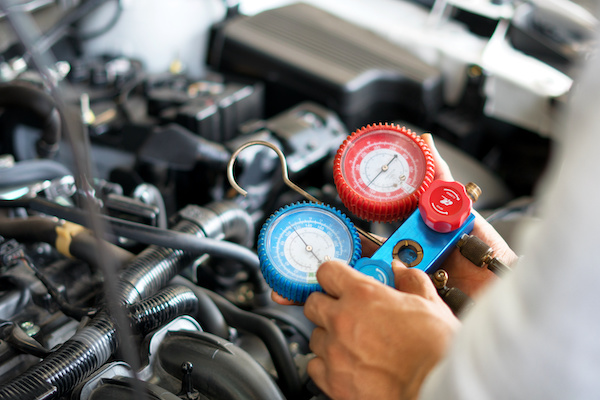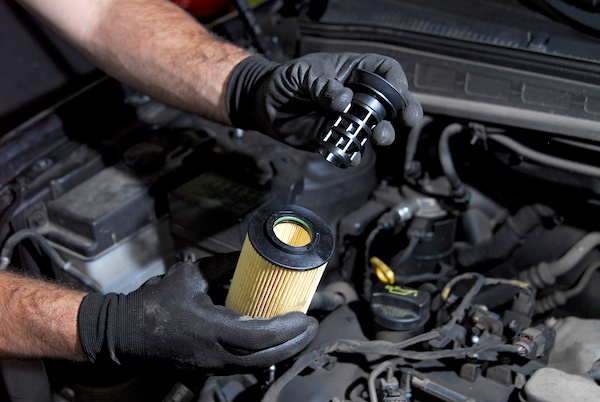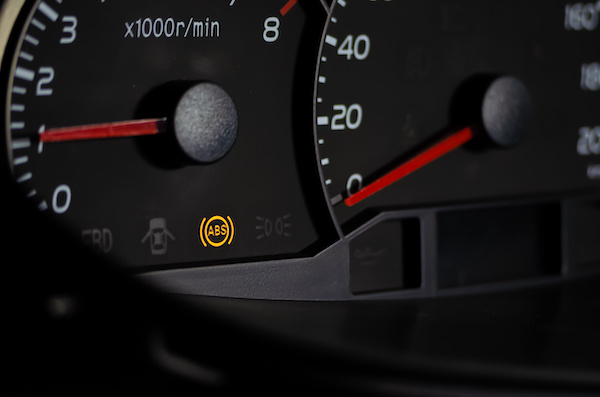Posted on 4/25/2022

It is crucial for Atlanta drivers to have proper functioning air conditioning in their cars for the hot spring and summer months. If you want to ensure your Jaguar to stays cool, count on the auto repair technicians at Atlanta Car Care to service your AC system when you need it. Below are some essential tips that we can offer to keep it running smoothly. Use AC at least once a week, even during off-seasons. Did you know that regular use of the system helps it run better? It will maintain the gas pressure to keep the compressor functioning. Run the defrosters. If you've gotten the foul smell from your AC, it is probably because of mold and mildew buildup. Turning on the defrosters can help prevent this from occurring as it functions to remove excess humidity trapped throughout the system. Recharge your air conditioning system. Most drivers tend to forget about this crucial step, but if you want your AC to blow cold, you'll need to have it recharged every other yea ... read more
Posted on 3/15/2022
.jpeg)
Spark plugs are one of the smallest and simplest components in most BMWs vehicles today. While they might be dainty, They have a huge impact on your engine performance. Spark plugs are responsible for providing the necessary spark to start and power your engine. Over time your spark plugs can get corroded and wear down. Here are some major signs that indicate your BMW's spark plugs need to be replaced: Excess fuel consumption Since these little metallic devices support efficient combustion, your mpg will likely go down once your spark plugs are worn. It could also be due to your regular gapping between the electrodes. You might notice more frequent trips to the gas pump as a result. Hard time starting engine If your spark plugs can’t provide the necessary power to start your engine, it’s a clear sign that you need to replace them soon. Keep in mind that faulty spark plugs are not an unusual case, and it happens all the time as vehicles age. Rough idlin ... read more
Posted on 2/21/2022

Most of us are familiar with our oil changes, but did you know that an oil filter change usually comes with it? It is so normalized that the mechanic will usually take care of it. Since your engine runs day in and day out, harmful debris and dust can get picked up by your engine oil. Thankfully, the contaminants get filtered out when the motor oil flows through the filter. Over time, the oil filter will get dirty and clog up. Failing to replace it could lead to insufficient lubrication of engine parts and engine overheating. It would be best to get an oil filter change every time or every other time you have your oil changed. Usually, your mechanic will be able to judge. You can also refer to your vehicle's owner's manual to determine how frequently you may need a new oil filter. The manual has tons of details regarding oil services, such as what type of oil and how often you should have it done. If your manufacturer suggests that you use synthetic motor oil, you ... read more
Posted on 1/31/2022
.jpeg)
One of the most important responsibilities you have as a Mercedes-Benz owner is to check your oil. Experts typically recommend doing this as often as once a month. "Why," you might ask? Well, engine oil is essentially the lifeblood of your vehicle. Your engine performance and efficiency will significantly drop without fresh, working motor oil, and you could suffer significant engine damage. Besides burning through your oil, you might encounter an oil leak. Checking your oil often will allow you to catch problems, like leaks, early on before they can leave damaging effects on your engine components. Below is our step-by-step guide on how to check the engine oil in your Mercedes-Benz: Make sure your car is off and parked on an even surface. Open the hood and prop it. Locate the oil dipstick next to the engine. The dipstick handle is almost always yellow and labeled, so you can't miss it. Pull out the dipstick and wipe it down with a clean rag or paper towel. Reinsert t ... read more
Posted on 12/22/2021

Your Kia's ABS light usually signifies that there's a problem with one or more anti-lock brake parts. Your brake fluid may be low, or the signals from wheel sensors malfunction. Whatever the problem may be, the certified technicians at Atlanta Car Care can diagnose, repair, and reset your ABS light. What Does the ABS Light Mean? Nowadays, most cars have an ABS that helps monitor each wheel's rotational speed using sensors. The sensors will alert your car's computer to ensure that the vehicle is stable and under control in unforeseen circumstances, such as slipping on snow or rain. If the computer picks up any abnormalities, it will engage your ABS light to come on. What Should You Do If The ABS Light Is On? When your car's ABS light comes on your Kia, you should first find a secure spot to pull over to. You should test whether it is a false signal by turning off the car, then restarting it. Sometimes a simple reset can resolve the problem, and the ABS ligh ... read more